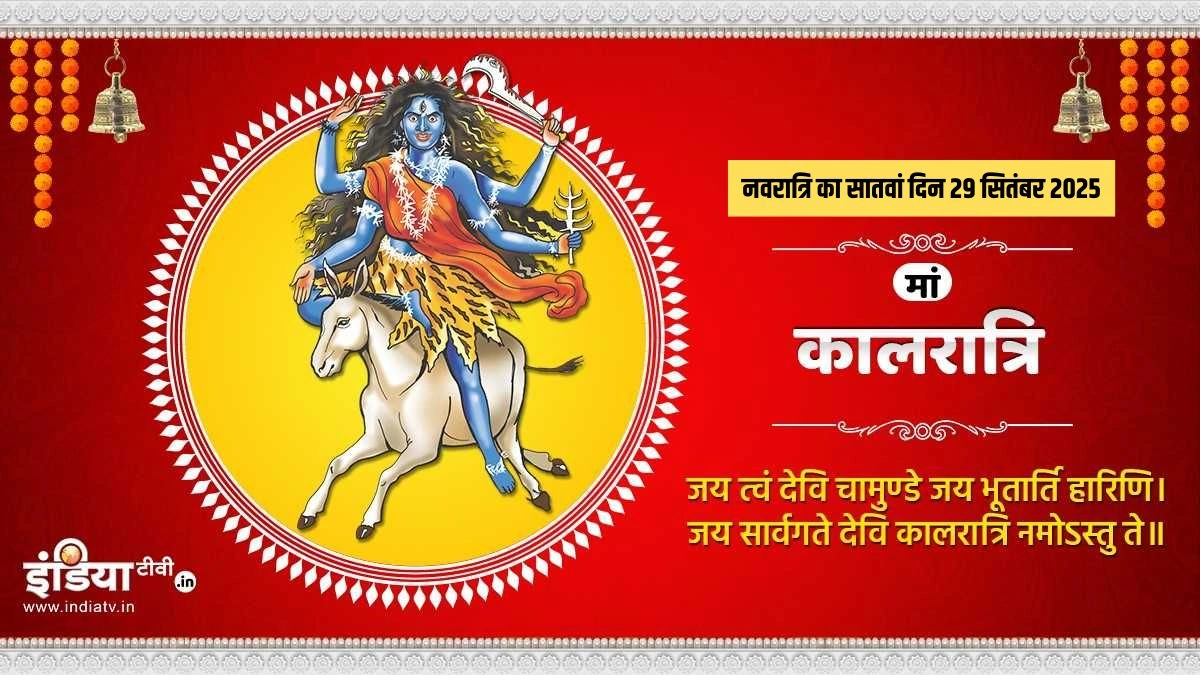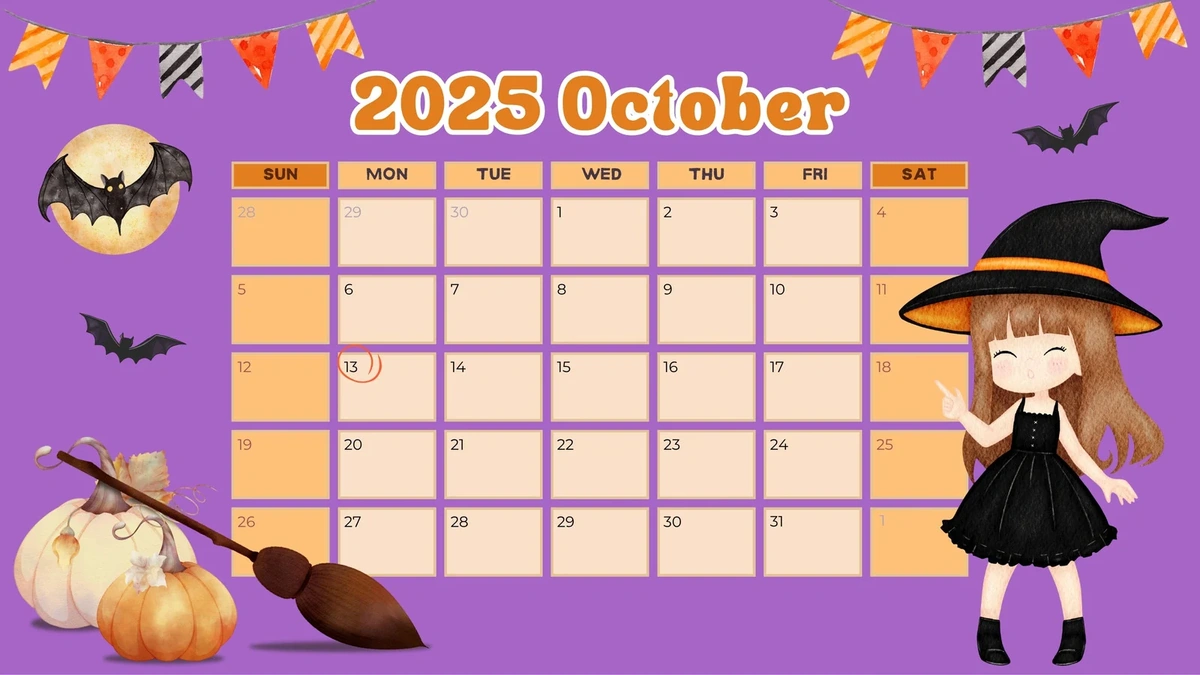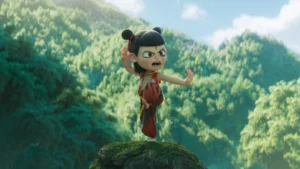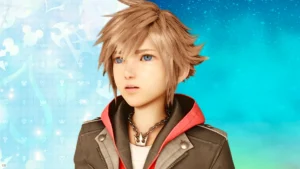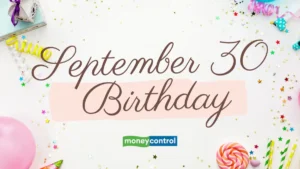Navratri 7th Day | Why This Day Holds a Special Power
Navratri. Just the word conjures up images of vibrant colours, rhythmic dances, and the aroma of delicious festive food. But beyond the glitz and glamour, each of the nine nights holds a profound significance. And today, we’re diving deep into the heart of the Navratri 7th day , dedicated to Goddess Kalratri. But here’s the thing: it’s not just about another day, another goddess. It’s about understanding the why behind the worship, and how it resonates with our lives even today.
Goddess Kalratri | Beyond the Fierce Form
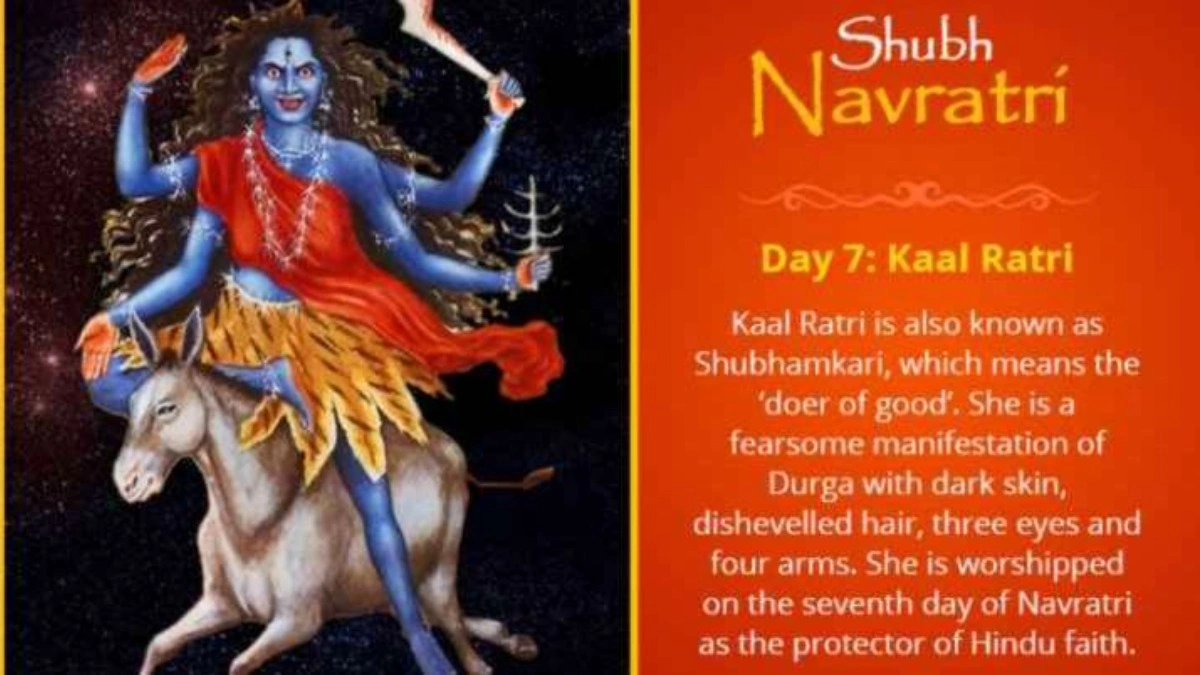
Let’s be honest, Kalratri’s appearance can be a bit…intimidating. Dark complexion, untied hair, and a garland of skulls. But don’t let that scare you! That’s just one way to see her. What fascinates me is that beneath this fierce exterior lies a compassionate protector. She destroys ignorance, dispels darkness, and removes all obstacles from her devotees’ paths. It’s like that tough-love friend who tells you exactly what you need to hear, even if it stings a little. She gives tough love to make us into stronger people.
Think of it this way: Imagine you are about to encounter a dark force, like a bad habit you need to quit, an addiction, or a difficult colleague who gives you a hard time. You need a fearless force to stand up to that darkness, right? That is where Kalratri comes in. She is the destroyer of all the darkness you need to eliminate.
The seventh day of Navratri is a reminder that facing our fears is crucial for growth. Kalratri empowers us to confront the shadows within ourselves and emerge stronger, wiser, and more resilient. This is how you get rid of the things in your life that no longer serve you.
The Colour Connection and the Significance of Blue
Each day of Navratri is associated with a specific colour, and the colour for the 7th day can vary based on the region and traditions. A common colour associated with the seventh day of Navaratri celebrations is blue. Blue represents peace, strength and devotion. And that makes sense, right? After all, Kalratri is a powerful force, but one rooted in protecting her devotees.
But colours are just one aspect of the festival. According toIndia Today, some devotees also wear white on this day because it represents purity.
Here’s the thing: whether you choose to embrace blue or another colour that resonates with you, the key is to do so with intention. Let it be a reminder of the strength and peace you seek within yourself.
Puja Vidhi and Mantras | Connecting with the Divine Energy
So, how do you actually connect with the energy of Goddess Kalratri on this auspicious day? The Kalratri Puja involves specific rituals and mantras. While the exact details may vary, the core principle remains the same: to offer your devotion and seek her blessings.
A common mistake I see people make is thinking that complex rituals are the only way to connect with the divine. While following traditional procedures is wonderful, it’s the sincerity of your heart that truly matters. You can start with a simple prayer, chanting the Kalratri mantra, or even just spending some time in quiet contemplation.
Here’s a mantra you can use:
Om Aim Hreem Kleem Kalikayai Namaha
According to theDrik Panchang, the Puja is often performed during the late night. This is because Kalratri is seen as the Goddess who governs the night, and the late night is her time of influence.
The Deeper Meaning | Overcoming Inner Demons
What fascinates me most about Navratri is how relevant it remains even in our modern lives. It’s not just about ancient mythology; it’s about the ongoing battle within ourselves. Each day of Navratri, each goddess we worship, represents a different aspect of this inner struggle. So, the significance of Navratri 7th day is helping us defeat all the inner struggles that bring us down.
Kalratri embodies the courage to face our inner demons – our fears, insecurities, and negative thought patterns. These demons can be anything holding us back from reaching our full potential. It could be a fear of failure, a lack of self-confidence, or a tendency to procrastinate. Kalratri inspires us to confront these challenges head-on and emerge victorious.
Let me rephrase that for clarity: Kalratri is a reminder that true strength comes not from avoiding our problems, but from confronting them with courage and determination.
But, it is important to note that the Goddess will not do the work for us. She has just given us the tools and courage to take the next steps ourselves. Then we can move forward in our lives.
How to Channel Kalratri’s Energy in Your Daily Life
Here’s the thing: you don’t need elaborate rituals or a temple visit to connect with Kalratri’s energy. You can channel it in your daily life through small, intentional actions.
For example, next time you are feeling overwhelmed by a challenge, pause and ask yourself: what is the worst that can happen? Often, simply acknowledging your fears can diminish their power. Next, think about the action you can take to reduce that fear and take the action. That is why the 7th day of Navratri is celebrated.
Or, if you are struggling with a negative thought pattern, try to reframe it in a more positive light. Instead of dwelling on your weaknesses, focus on your strengths. Instead of criticizing yourself, practice self-compassion.
Another way to embrace Kalratri’s energy is by acts of service. Volunteer your time to help others, donate to a cause you believe in, or simply offer a kind word to someone in need. By spreading positivity and compassion, you are actively contributing to the triumph of good over evil.
Ultimately, the 7th day of Navratri significance lies in its invitation to embrace our inner strength and overcome the darkness within. It’s a reminder that we all have the power to transform our lives and create a more positive world.
And remember: Navratri is a great time to embrace the festive environment!
It’s not just about religious fervour; it’s about celebrating life, resilience, and the triumph of good over evil. And that’s something we can all get behind.
Check out this article on Kolkata News . Embracing and celebrating your own culture is empowering!
FAQ About Navratri 7th Day and Goddess Kalratri
What if I miss the traditional puja on the 7th day?
Don’t worry! The most important thing is your sincere devotion. You can still offer a simple prayer or chant the Kalratri mantra at any time.
What are some other names for Goddess Kalratri?
She is also known as Shubhankari, which means “one who does good.”
What type of offering is considered auspicious for Goddess Kalratri?
Devotees often offer jaggery or sweets made from sesame seeds.
Is it necessary to fast during Navratri?
Fasting is a personal choice. If you choose to fast, do so in a way that is healthy and sustainable for you.
Check out this article to understand Independence Day Meaning Today .
In conclusion, the worship of Goddess Kalratri on the seventh day is not just a religious tradition. It is a profound teaching that inspires us to embrace our inner strength, confront our fears, and overcome the darkness within. This is how we can live our life to the fullest and be our best selves.
